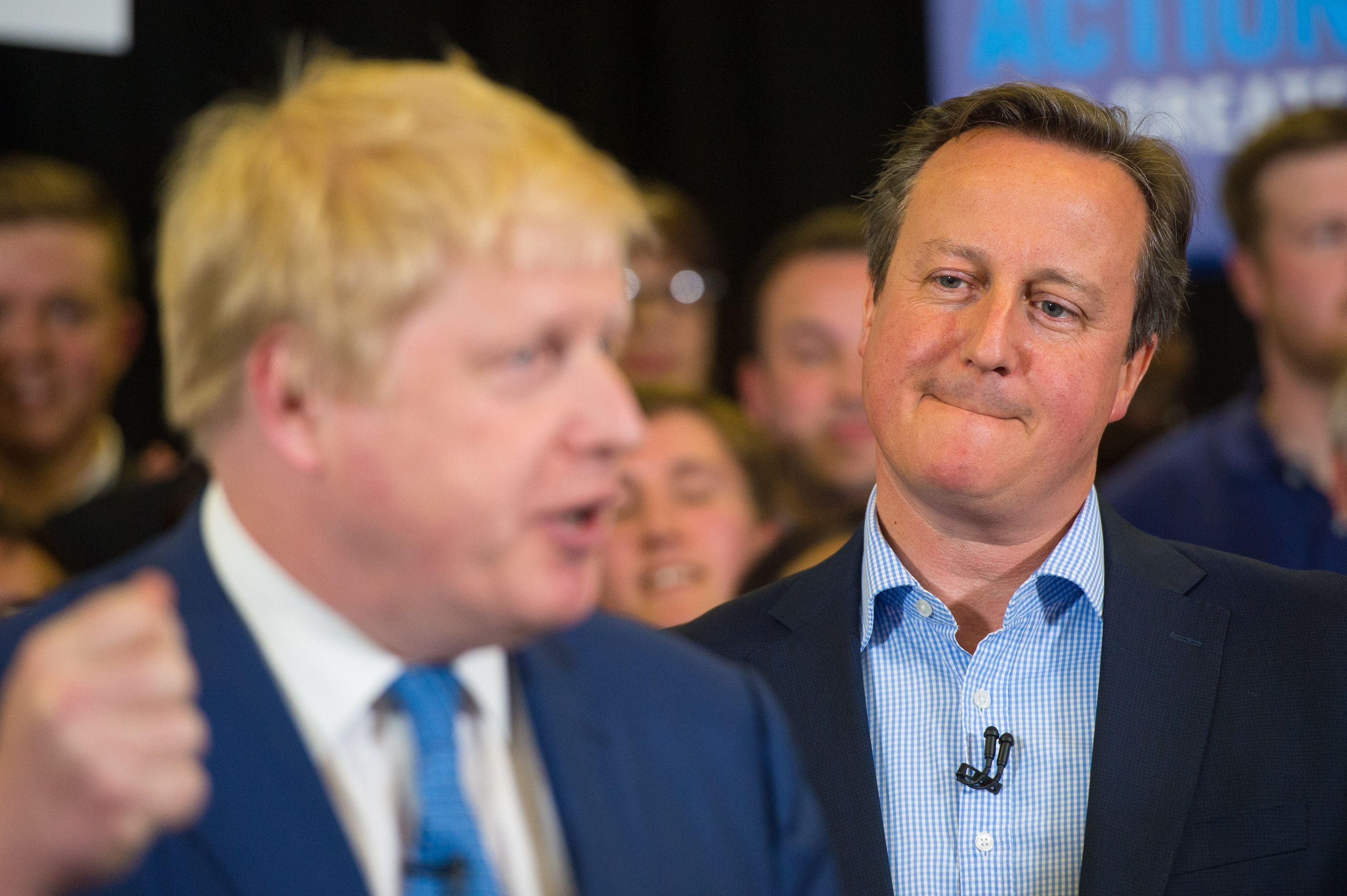The architects of Brexit have left the rest of us to clean up the mess
Letters to the editor: our readers share their views. Please send your letters to letters@independent.co.uk

Mark Carney has said it all!
How I wish he was still governor of the Bank of England, a position in which he excelled, while the man who brought Brexit about with an ill-conceived referendum is now a lord, and Boris is cashing it in with his self-serving propaganda in the right-wing press.
They might look back and ask themselves whether Brexit gave the green light to Russia, diminished our status on the world stage, caused our food prices to soar, undermined our security and stymied opportunities for our young people.
But when this country hits rock bottom, his lordship, cabinet members and their ilk will be off to their hideaways, leaving those they were supposed to serve to pick up the pieces.
Angela Croft
Hampstead
Our tax system needs to toughen up
The very principle of inheritance tax is wrong, as it’s built on envy rather than tax practicality.
Usually, an inheritance is split between family members so they each receive only part of the estate. Consequently, the inheritors are less wealthy than the deceased.
It is also a destructive tax, often causing family friction, sometimes destroying family businesses.
Moreover, as is often pointed out, it is difficult to collect, thus a waste of time and cost to the administration tracing such estates.
It matters not how wealthy a person is but that they pay sufficient tax during their lifetime. The wealthier they are, the more tax can be extracted overall.
Theoretically, the more wealthy people the nation has, the more income tax can be extracted.
Back in the 1950s and 1960s, my maternal grandparents paid a top rate of more than 90 per cent but still lived a privileged life while building their businesses.
In my view, inheritance tax should be scrapped and the income tax system toughened up. There is no reason why there cannot be a sliding scale above the current top rate so that top earners again pay 90 per cent.
Graham Cooper
Address supplied
Standing up to bullies
The unwarranted Russian war in Ukraine, and previous incursions into its country, have been well documented for over a decade. When Russia invaded the southern area of Ukraine, there was little or no support for the Ukrainians. Consequently, Russia simply walked in and now is in occupation.
This illustrates, to me at least, that Vladimir Putin has further plans to expand his country’s borders. Where will his army invade next? Will his imperialistic needs alight on any of the other countries that it borders?
Like bullies in the playground, standing up to them is the only way to prevent further bullying. If the European Commission, America, Britain, Australia, Nato and others joined as one and acted as one entity, surely Putin would end this stupidity.
History shows that wars settle nothing. Thousands of innocent people dying due to one man’s vanity is both senseless and barbarous. Russian money could be seized, more severe sanctions could be arranged, but only a united show of strength by several countries will demonstrate our intent to Russia.
Putin must be persuaded to cease his aggression towards Ukraine and other countries. We want a peaceful life. Am I too naive to believe that this will happen?
Keith Poole
Basingstoke
Change does not come easily or quickly
If Nelson Mandela’s election as South Africa’s first fully representative democratic president 30 years ago was a high water mark of recent human history, the current state of the world feels like a low point.
Not only has that moment of high-octane global optimism not been matched but, with the world mired in seemingly intractable conflicts and international law being stretched to breaking point, that day feels like a very distant place.
Yet despite the current clouds of despondency, there are lessons to be learnt and hope to be gleaned from that day in South Africa and the movement that made it possible.
Some may ask “Where are today’s Mandelas?”, and although we may never see his like again, there are many around the world following in his footsteps. Their stories and struggles may not make the headlines but each day, courageous activists and human rights defenders, artists and politicians, lawyers and journalists stand up against injustice.
Whilst these may be dark times, we should take strength from that day three decades ago.
Change does not come easily and it does not come quickly. It can be diverted, subverted and corrupted. Nonetheless, those who bore witness to the remarkable power of the South African liberation movement know that – with courage – change is possible.
As Mandela said at his inauguration: “Our deepest fear isn’t that we are weak. Our deepest fear is that we are powerful beyond measure. It is our light, not our darkness that most frightens us. As we are liberated from our own fear, our presence liberates others.”
Stefan Simanowitz
London
Prohibitions never work
It is extremely mystifying that so many are in favour of Rishi’s latest gimmick of progressively banning the sale of tobacco. Has no one registered that prohibitions don’t work? Never did, never have, and never will.
To think that it will stop anyone from getting hold of what they want is living in fantasy land.
The prohibition of all other drugs hasn’t achieved anything much, apart from costing the country, and indeed the whole world, extremely dearly. It is largely ineffective.
How many billions have been wasted on the futile business of policing? Much better to legalise all drugs, make revenue towards managing the fallout, and release millions of hours of police time for more productive activity, which we all want.
I despair daily at the simplistic thinking of politicians.
Jane Valentine
Colchester
Join our commenting forum
Join thought-provoking conversations, follow other Independent readers and see their replies
Comments
Bookmark popover
Removed from bookmarks